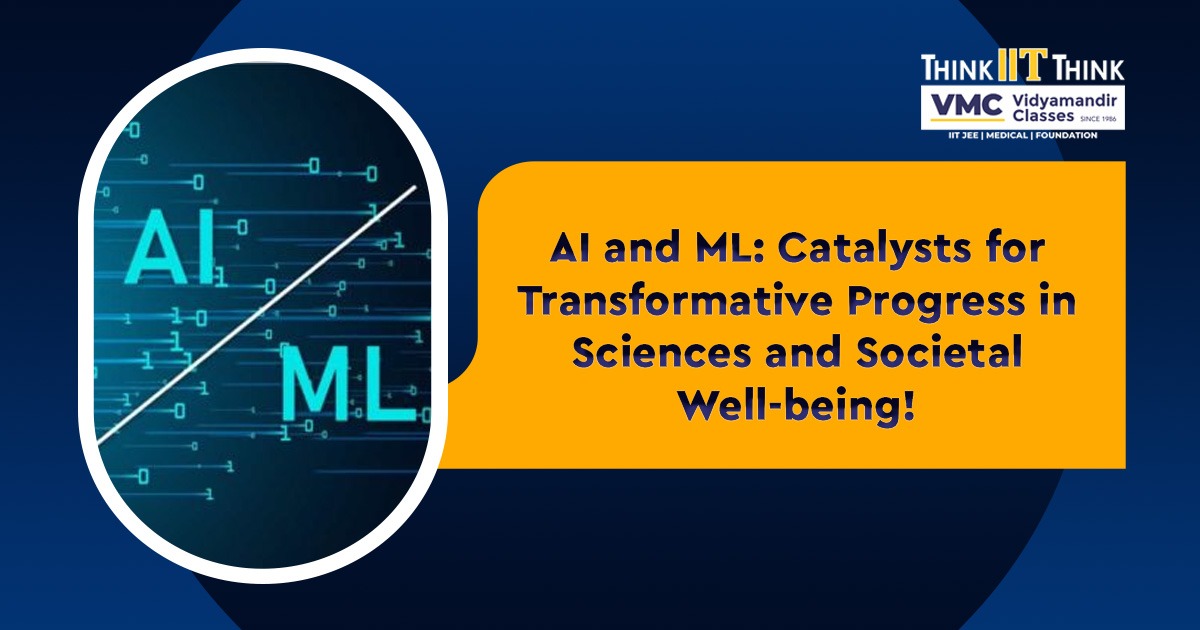AI and ML: Catalysts for Transformative Progress in Sciences and Societal Well-being!
 Posted On
Posted On
285 total views, 2 views today
In the pursuit of our shared vision for positive change, we turn to the formidable tools of science and the evolving landscape of empirical sciences. At the forefront of this transformation are Artificial Intelligence (AI) and Machine Learning (ML), shaping the future of reasoning, problem-solving, and decision-making. As AI becomes the driving force, it opens up unprecedented opportunities for innovation and rapid discovery, creating a fertile ground for convergence across scientific disciplines.
Undoubtedly, ML, a subset of AI, plays a pivotal role in pattern training and recognition, weaving a tapestry of possibilities across diverse domains. This convergence-driven innovation becomes a powerful instrument in achieving the United Nations Sustainable Development Goals (UN SDGs). Goals addressing poverty, hunger, healthcare disparities, education gaps, and environmental sustainability stand to benefit from the synergy of AI and the empirical sciences.
A prime example lies in agriculture, where AI seamlessly connects data to governance decisions, revolutionizing resource planning. This kind of innovation is a linchpin in addressing the complexities outlined by the UN SDGs, offering governments, businesses, and universities unprecedented opportunities to build a better future.
The transformative potential of AI and ML extends to personalized health and well-being, promising a paradigm shift in diagnostics, treatment personalization, and healthcare accessibility, especially in remote areas. Yet, the impact of technology alone is limited. The key lies in governance and citizenship, with transparent decision-making AI platforms paving the way for a more engaged and hopeful society—a cornerstone of democracy.
Decision sciences, fueled by AI and statistics, not only influence healthcare markets but also guide daily governance decisions. By integrating these decision platforms with the UN SDGs, governments and people can stay aligned with their goals, fostering continual course correction and steering humanity in the right direction collectively.
As Margaret Chan wisely noted, success in healthcare requires a combination of leadership, innovation, and collaboration. In this context, AI platforms become a catalyst for synergizing leadership, innovation, and collaboration in novel ways, particularly in biotechnology. The intersection of sustainable food production, health advancement, drug discovery, and precision agriculture becomes a harmonious pursuit, aligned with the broader goals of environmental sustainability.
AI’s unprecedented capacity to analyze vast datasets propels progress in climate prediction, resource optimization, and the development of eco-friendly solutions. This transformative capability empowers scientists, policymakers, and governments to make informed decisions, ensuring the future of agriculture and nutrition is both optimized and aligned with the needs of populations worldwide.
In the realm of materials science and engineering, AI and ML foster interdisciplinary alliances, accelerating progress and promoting sustainable industrialization. This integration addresses key aspects of decent employment, responsible consumption, and climate change mitigation. The result is a shift towards novel materials and innovative processes, aligning with a sustainability paradigm to create employment opportunities while respecting environmental stewardship.
Final Thoughts
In essence, AI-driven convergences transcend traditional disciplinary boundaries, propelling progress in civil engineering, computer science, and beyond. The potential for smarter infrastructure, sustainable cities, and inclusive societies lies within reach, provided we establish effective governance frameworks. The pervasive influence of AI and ML is reshaping scientific frontiers, urging engineers and scientists to engage in cross-disciplinary conversations, share data, and collaborate on solutions that pave the way for a new paradigm in science—one that is purposefully oriented towards the UN SDGs.




